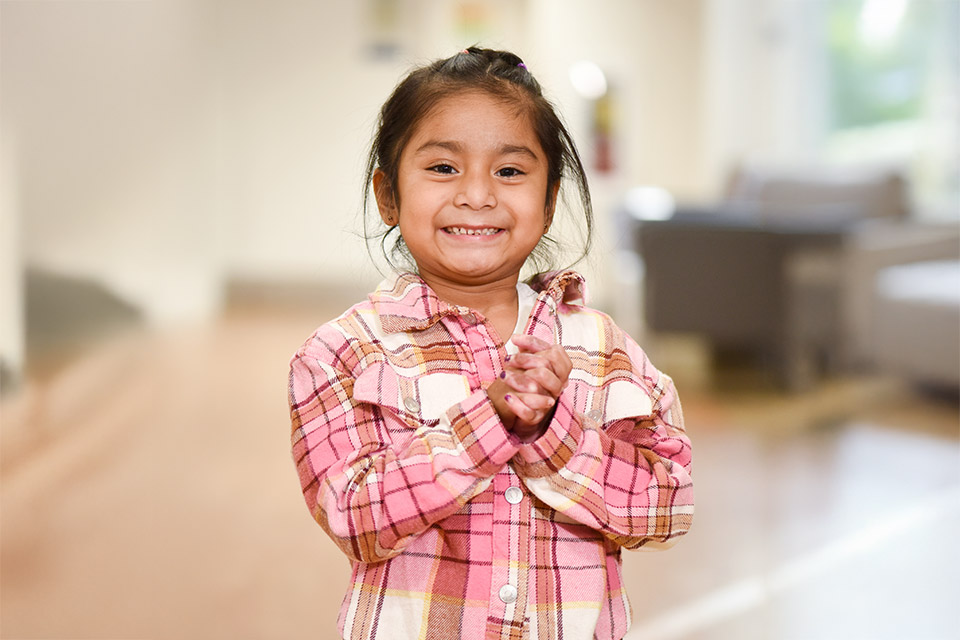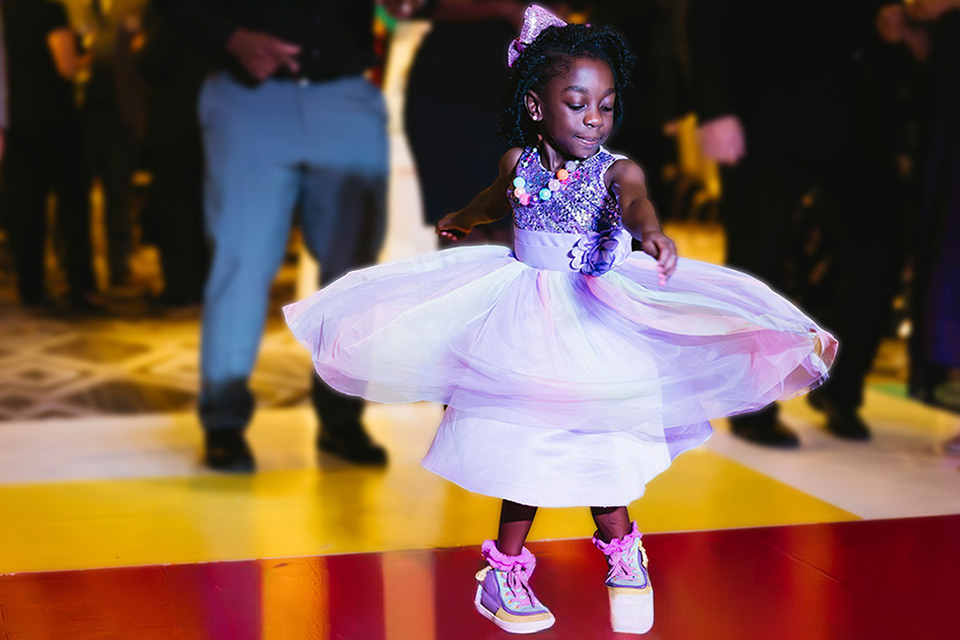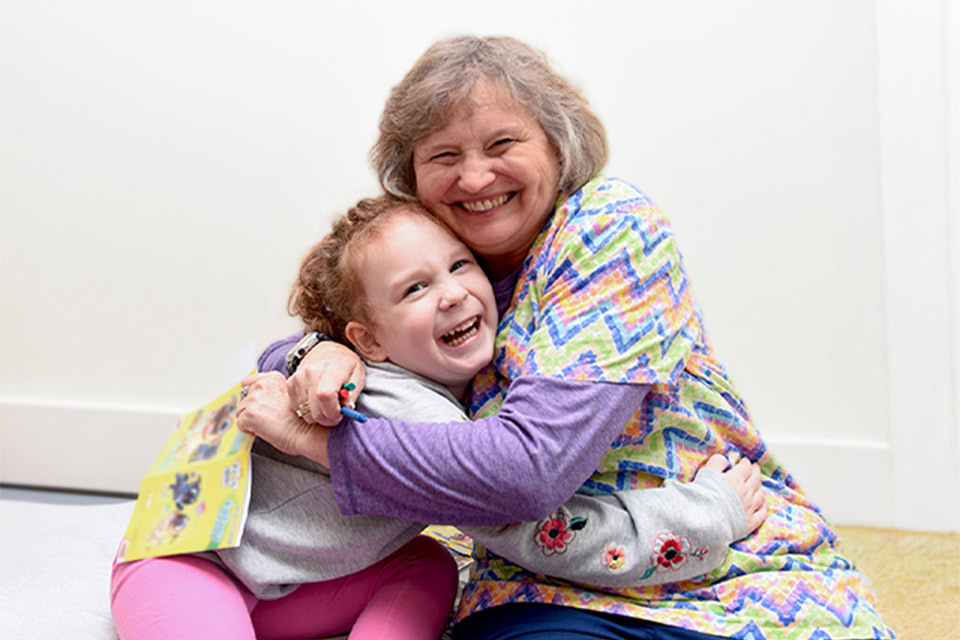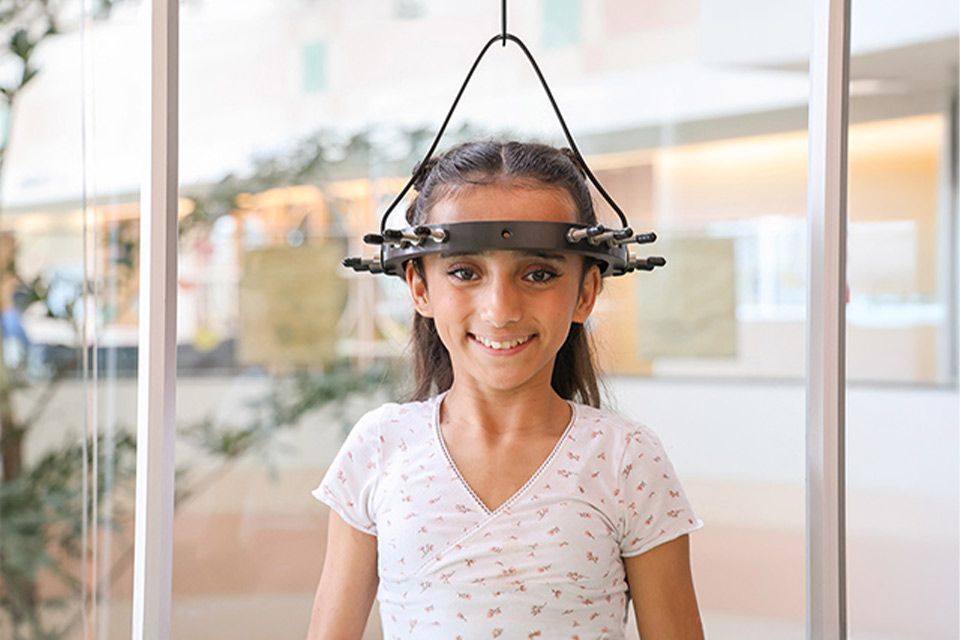Spinal Cord Injury
Families who choose Shriners Children's for their child's spinal cord treatment can feel confident they've made the best decision for their child.
In 1980, Shriners Children's launched our spinal cord injury program. Our specialized teams are devoted to giving children with spinal cord injuries (SCI) all-inclusive and thoughtful care that will build up their ability, confidence and independence.
A number of issues, such as infection, tumors, autoimmune conditions and trauma, can cause spinal cord injuries. Spinal cord injuries affect everyone differently, but the symptoms typically include weakness, loss of feeling, and bowel or bladder changes.
Spinal cord injuries have a huge impact on the lives of both the child and their family. Our teams recognizes this and work very hard to put together a care plan that meets the needs of each family.
The primary goal of our spinal cord injury program is to make sure children are able to participate in their communities, be independent and live happy lives free from medical complications.
Types of Spinal Cord Injuries
Symptoms related to spinal cord injury, and the severity of the injury, depend on the location of the trauma.
If the cervical spine, or back of the neck area, is injured, the result will likely be loss of strength and muscle function – with varying degrees of paralysis in the arms and legs. The common term used by medical professionals for this spinal cord injury outcome is tetraplegia, formerly referred to as quadriplegia. If the injury is quite severe, it can also affect the child’s ability to breathe on their own.
If the thoracic spine, or the upper and middle part of the back, is injured, the arms and hands continue to function as they did prior to the injury, while the legs become impaired. This is referred to as paraplegia. The severity of thoracic spinal cord injuries varies. The injury may cause minor issues with the ability to move or feeling in the lower limbs; or can lead to total paralysis from the waist down.
If the lumbar or sacral spine, or the lowest parts of the back, are injured, it can cause paralysis and loss of function in the legs. This is also referred to as paraplegia. The severity of lumbar and sacral spinal cord injuries varies. The injury may also cause loss of nerve and muscle control to the bladder, bowel, and sexual organs.
It is important to note that not all spinal cord injuries lead to paralysis. There can be varying medical issues that follow a spinal cord injury, which can interfere with other bodily functions.
Treatment of Spinal Cord Injuries
Every child deserves a treatment plan that is personalized to their needs and utilizes advanced and innovative techniques. Shriners Children's is internationally known and respected for our expertise in pediatric spinal cord injury care. We work hard to provide compassionate and life-changing to care to children in a way that supports them physically and emotionally.
Shriners Children's offers:
- Acute care, including surgical spine stabilization
- Primary and secondary rehabilitation
- Tendon transfers that may restore function and use of arms
- Surgical implant of a phrenic nerve pacer that has allowed severely injured children to breathe without a ventilator
- Upper extremity surgical reconstruction
- Urologic surgical reconstruction
The Setting
Comprehensive inpatient and outpatient services are provided in a family-centered and culturally sensitive environment. Each patient has a care manager who will assist with all aspects of the visit to our hospital, including lodging and transportation arrangements. We provide care at the appropriate levels including:
- Intensive care
- Inpatient rehabilitation
- Outpatient rehabilitation
- State of the art facilities and equipment
Our buildings are designed specifically to serve the medical and emotional needs of children.
Patients are able to participate in recreational activities with other children in bright play areas equipped with video games, craft centers and games that enhance the family-friendly environment of care. Our recreation specialists spend time getting to know our patients in order to figure out what kind of activities they enjoy.
Patients are encouraged to attend sporting events, go to movies and participate in other community activities. Many patients participate in adaptive recreational sports, including skiing, tennis, baseball and more. Art programs give patients an opportunity to experiment with adaptive devices and encourage creative expression.
Specific treatments and services may vary by location. Please contact a specific location for more information.
Shriners Children's has helped us to cope better and feel more comfortable with Memphis’s spinal cord injury. I felt I would never feel confident handling her care on my own. But after being here, I feel like there is nothing I can’t do.

Pediatric Rehabilitation
Our Specialties
View All SpecialtiesRelated Services
- Aquatic Therapy
- Music Therapy
- Motion Analysis
- Pediatric Orthotic and Prosthetic Services (POPS)
- Radiology and Imaging
- School and Community Re-entry Program
- Wheelchair and Seating








